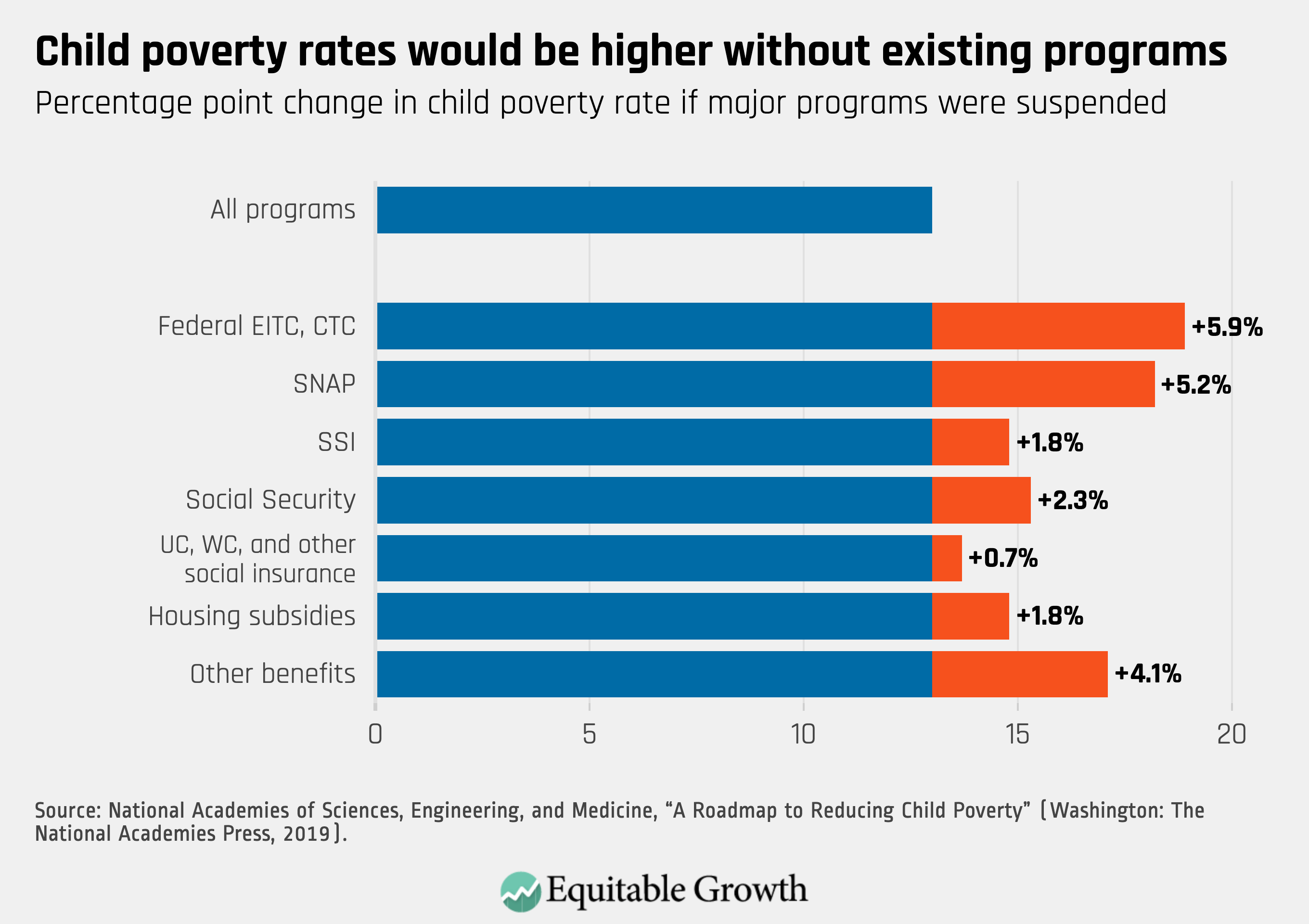Weekend reading: “Follow the wealth” edition
This is a weekly post we publish on Fridays with links to articles that touch on economic inequality and growth. The first section is a round-up of what Equitable Growth published this week and the second is the work we’re highlighting from elsewhere. We won’t be the first to share these articles, but we hope by taking a look back at the whole week, we can put them in context.
Equitable Growth round-up
This week, Equitable Growth released a fact sheet on causes and consequences of the gender wage gap—as well as policy solutions to close the gap. This summary is based on a 2018 report for the Washington Center for Equitable Growth by sociologist Sarah Jane Glynn and a 2017 paper by Cornell University economists Francine Blau and Lawrence Kahn. Some of the major causes of the gap include occupational and industrial segregation, outright discrimination, deunionization, and educational disparities. The fact sheet proposes reforms to close this pay gap, including but not limited to pay data collection, universal paid leave, child care access, and affirmative action plans.
Equitable Growth grantee and University of Chicago economist Manasi Deshpande published her working paper “Disability and distress: The effect of disability programs on financial outcomes” with co-authors Tal Gross and Yalun Su in the Equitable Growth working paper series this week. Deshpande summarizes their paper in a column for Equitable Growth’s website. Their paper provides the first empirical evidence of the role of disability insurance programs in reducing financial distress.
In the most recent addition to Equitable Growth’s “Competitive Edge” blog on market competition and antitrust enforcement, Howard University law professor Andrew I. Gavil discussed how Section 2 of the Sherman Antitrust Act of 1890 must be adjusted to address contemporary challenges in market concentration. While Gavil argues that historical references provide a framework for antitrust enforcement today, he concludes that the law must be updated to reflect the competitive challenges of today’s economy.
Equitable Growth grantee and Harvard Sociology Ph.D. candidate Robert Manduca this week delved into the data from his recent paper on how growing economic inequality in the United States contributes to economic disparities across regions. In addition to tracking how these regional disparities have increased over the past 40 years and noting that the rise of the super wealthy in a handful of metropolitan areas has been particularly responsible, Manduca concludes by advocating for investments in efforts to reduce inequality—both across the income distribution and across regions.
Equitable Growth Research Advisory Board member Janet Currie discussed the findings of a report she recently co-authored for the U.S. Congress on the state of child poverty in the United States and the best path forward for dramatically reducing it. On top of pointing out the contributions of existing social programs to keeping child poverty lower than it would otherwise be, Currie argues for several packages of evidence-backed investments in child health, education, income support, and other programs that have the potential to reduce child poverty by half over the next decade.
Equitable Growth Dissertation Scholar and The New School doctoral candidate in economics Kyle Moore highlighted some of the findings of his empirical research on the effects of economic disparities across race on health outcomes, especially for African Americans. Before concluding with directions for his future research, Moore discusses two preliminary findings of his work: notably, that older black Americans are more likely to face stress than their white counterparts, and that the combination of stressors and limited resources has a particularly negative impact on health outcomes. You can see a full recording of his seminar on this topic here.
In his weekly “Worthy Reads” column, University of California, Berkeley economist and Equitable Growth columnist Brad Delong highlights recent research and writing in economics from Equitable Growth and other economists. This week, Brad highlighted Equitable Growth’s recent report on net worth taxes authored by economist Greg Leiserson, myself, and research assistant Raksha Kopparam. He also points to analysis by Economic Policy Institute Director of Research Josh Bivens on the difficulties of predicting wage growth with measures of labor market slack.
Links from around the web
Brentin Mock discussed a new study from economists Dionissi Aliprantis and Daniel Carroll at the Federal Reserve Bank of Cleveland on the historical and contemporary causes of the massive current levels of racial wealth inequality. The authors argue that this disparity is largely caused by racial income inequality and less so by historical factors. Nevertheless, Economic Policy Institute economist Valerie Wilson points out that closing the wage gap should be a part of a larger economic strategy to level the economic playing field for black workers. [citylab]
Loren Berlin at the Urban Institute published an interview this week with Ohio State University economist, Equitable Growth grantee, and executive director of the Kirwan Institute for the Study of Race and Ethnicity Darrick Hamilton on the economics of shrinking the racial wealth gap. Specifically, Hamilton explains the rationale behind his proposal for baby bonds, or trusts set up by the federal government when a child is born and managed by the federal government until the child becomes a young adult. [next50]
In response to recent proposals for a net wealth tax and a higher upper rate in the income tax, Harvard University economist Larry Summers and University of Pennsylvania lawyer-economist Natasha Sarin published an op-ed arguing that closing loop-holes and broadening the tax base are the best ways to increase tax receipts from the mega-rich. Despite their core argument, Summers and Sarin agree that all these recent proposals are part of an important discussion on the best methods to use tax policy to reduce growing inequality and increase government revenues. [boston globe]
Friday Figure

Figure is from Equitable Growth’s, “We can cut child poverty in the United States in half in 10 years”

